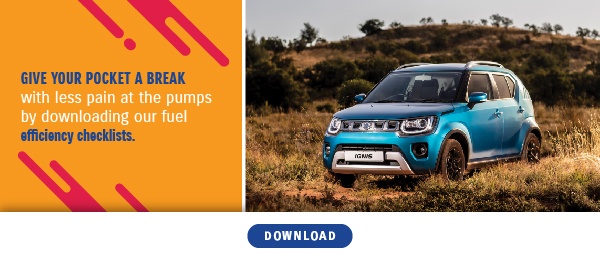Petrol vs diesel is one of the Great Debates in the auto world; we run through the pros and cons of both here.
Estimated reading time: 3 minutes, 39 seconds.
One of the biggest decisions car buyers have to make long before looking at models or specs is whether to shop for diesel or petrol. Brendon Carpenter, Brand Marketing Manager at Suzuki South Africa, says this issue is debatable and hotly contested.
Broadly speaking, the difference is that commercial cars, like bakkies, use diesel, but recreational cars use petrol—though there are many other distinctions between the two. For one, diesel cars are more expensive off the showroom floor but are markedly more fuel efficient. Says the Automobile Association, “On average, diesel engines consume between 25% and 30% less fuel than their petrol counterparts.” However, the different fuel choices lead to a good many other differences too.
The equation has changed dramatically recently with the wild fluctuations in the price of crude oil, a weakening Rand and generally rising fuel prices.
While diesel cars generally were more economical than their petrol counterparts and it was a saving at the pump car owners could ‘feel’, this is no longer the case. Since diesel cars are generally more expensive than their petrol counterparts, the rising price of diesel fuel makes it a lot harder for a buyer to amortise that additional upfront cost in fuel savings over the life of the car.
Comparing two petrol vehicles to their similar diesel counterparts and calculating the annual cost of fuel based on an annual mileage of 50 000 km we see:
|
Vehicle |
L/100km |
Range |
Tank |
Cost/Year |
|
Suzuki Spresso 1.0 GL |
4,9 |
551 |
27 |
R57 281,00 |
|
Suzuki Vitara 1.4T GLX |
5,8 |
810 |
47 |
R67 802,00 |
|
Diesel 1 (1,5 l) |
6,5 |
769 |
50 |
R78 511,05 |
|
Diesel 2 (1,5 T) |
4,6 |
1130 |
52 |
R53 774,00 |
(Based on Gauteng fuel price Sept 2022)
There used to be the negative perception that diesel cars were slower, smellier, noisier, and more expensive than petrol cars. Diesels have closed the gap significantly in these categories over the past decade.
There is a school of thought that maintains diesel engines are more harmful than previously believed, emitting toxic particles into the atmosphere.
However, modern diesel cars have highly efficient filters that capture these particles and a study by the University of Montreal showed petrol cars emitted up to 62 times more lung-damaging pollution in cold weather than their diesel counterparts.
Dr Patrick Hayes, of the University of Montreal, said, “Diesel has a bad reputation because you can see the pollution but it’s actually the invisible pollution that comes from petrol cars that is worse.”
Engineering Explained goes into some of the more technical differences between the petrol and diesel engines below; specifically looking at how the different engines function. A quote from the video: “Gasoline engines attempt to keep the compression ratio so that the air-fuel mixture does not rise above the self-ignition temperature. Diesel engines, on the other hand, use higher compression ratios, leading to more torque and better fuel economy. Here’s a handy model-specific infographic from cars.co.za that highlights some of the spec differences between petrol and diesel—more torque and better fuel economy.”
-1.png?width=1078&height=604&name=unnamed%20(3)-1.png)
Here’s our list of some key differences between the two:
|
Petrol |
Diesel |
|
Car models are cheaper to buy |
Car models are more expensive to buy |
|
Better for short trips and stop-go driving |
Fuel efficient over long distances |
|
Petrol engines cheaper to maintain |
Diesel engines last longer |
|
Not as powerful as diesel engines |
Diesel vehicles have low-speed torque and are better at overtaking and towing |
|
Petrol engines are quieter and more refined |
Diesel engines are louder |
|
Less fuel efficient |
Diesel engines’ CO2 emissions are 20% lower than petrol engines. |
|
A second-hand car generally does not retain its value as well as a diesel car |
Generally, a second-hand car retains its value better with a diesel engine |
|
No visible pollution |
More visible pollutants |
Here’s a handy model-specific infographic from cars.co.za that highlights some of the spec differences between petrol and diesel:
Following a survey by the Automobile Association in 2017, the organisation commented, “South African motorists must begin to realise diesel engines may be on their way out. Internationally, car makers are being forced to adhere to stringent emissions standards or face hefty fines.”
The auto industry has reacted to the challenge by producing more fuel-efficient and cleaner-burning engines for both petrol and diesel cars.
With more than 80% of South Africans using petrol cars, it may be the better choice for most drivers. “Though the choice does depend on your driving needs and finances, in general, it’s best to forget the diesel and put up with the higher cost of fuel every week,” says Business Tech.
Brendon recommends choosing a car that best fits your needs, but remember that a petrol car is often the better choice—especially if you’re driving around town and not regularly plugging away long distances.
Learnt something new? We’ve compiled 3 useful fuel efficiency checklists that will help you get the most out of your buck when it comes to filling up, click here to download them now.
Never miss a post. Subscribe to our blog and get all the latest blog posts delivered straight to your inbox.


